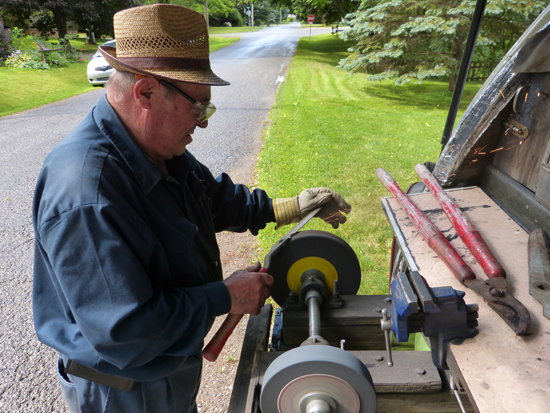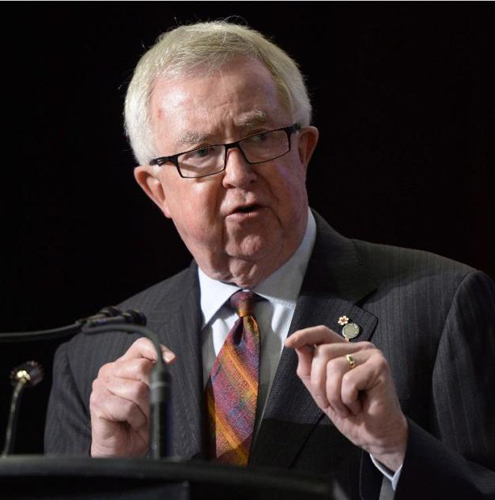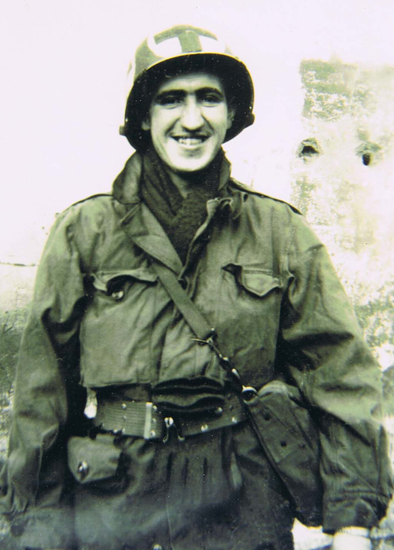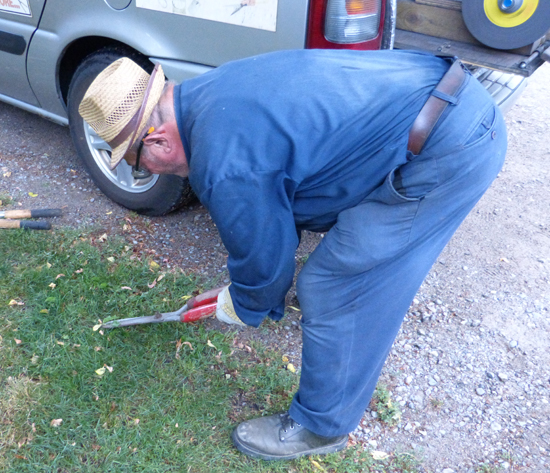
He was only 18, back in 1955. He didn’t speak a word of English when he and his parents arrived from Italy. And his skills were few; he knew how to sharpen knives, so his father could butcher what livestock the family had raised for food. But when John Zentana arrived in Canada, none of that mattered. The basic criterion for entry to this new country was simple.
“Are you all prepared to work?” immigration authorities asked.
“Anything,” John’s father promised.
That seemed enough to seal the deal. The Zentana family was in. And boy did they work. At that time, Toronto was booming with expansion, growth and optimism. And skilled workers were scarce. So, John and his family learned construction. They taught themselves to frame buildings, lay bricks, erect drywall and paint it to builders’ specifications. They learned carpentry, plumbing, electrical and sheet metal work. And it kept the Zentana family at work for a lifetime. The next time John lifted his head he’d retired, and it was 2003.
“But I wasn’t going to sit around on the front step,” he told me this week. “I could still sharpen tools, like I did for my father as a kid.”
So, for the past 15 years, John had driven the streets of villages and towns around the GTA, clanging a bell on the side of his Chevy Ventura until people like me stop him to have him sharpen an axe, garden clippers, scissors, you name it. Like John’s Dad promised, “Anything.”
When I think about the hoops that federal immigration officials put new Canadians through these days – What kinds of skilled certification do you have? How much is in your bank account? Where do you plan to live? How many languages do you speak? Can you support every family member you bring with you? Oh, and don’t expect a free ride for health care, social services, CPP, because you’ll have to fend for yourselves.
I’m being hypothetical here, but since 911 and the rise of so-called “homeland security,” the likelihood that anyone like the hard-working Zentanas could enter Canada or the U.S. has diminished drastically.

And you don’t have to go as far back as the spike in Italian immigration to Canada in the 1950s to recognize the problem of short-sighted 21st-century thinking among North American immigration authorities. It’s just 40 years ago that then Prime Minister Joe Clark riled immigration critics, when he announced that Canada would accept an additional 50,000 “boat people,” refugees fleeing southeast Asia as the Communists seized power in Vietnam.
Even members of Clark’s own cabinet claimed the refugees were “criminals” or dissidents “who pose a risk to Canada.” Positively Trumpian! To his credit, Clark countered with, “We have the capacity to do more.” And we did. The community where I live – Uxbridge, Ontario – raised money, spoke out against the xenophobes, and opened its homes to such people as Khanh Tang Banh, his wife and their six children.
“On January 26, 1980, we landed at Edmonton International Airport,” said his daughter Hoan Linh, who summed up their worldly worth as “only $20 U.S., my dad’s watch and my mom’s wedding band in our possession.”
Uxbridge, Ont., residents Barb and Ted Murphy invited the Banh family into their home, helped them get on their feet, find work, get their kids an education and a chance at university degrees. For 22 years, Khanh Tang Banh worked as a janitor for the Toronto District School Board and his wife packaged hot chocolate to put their children through school.
“After 30 years of adversity, where are we now?” Hoan Linh asked rhetorically a decade ago. “Today, in our family, there is a pharmacist, a lawyer, and dental hygienist, a computer engineer, two dentists and an optometrist,” several practising back in this very community, Uxbridge. Just like the Zentanas, the Banhs had a willingness to work.

For a final thought, I can imagine my own father, Alex Barris, a World War II U.S. Army veteran meeting a homeland security officer at the U.S.-Canada border today.
“Place of birth?” the officer might ask.
“New York City,” Dad would say.
“Status and prospects?”
“Discharged medic, just married,” Dad would say, then with hope, “I’m applying for a job at the Globe and Mail.”
“Right. Unemployed. An additional dependent. And apparently about to take a job away from a Canadian.”
“No,” Dad’d say, “but intent on working as hard as I can, supporting my family and eventually becoming a Canadian citizen.”

In 2018, my father – an eventual Order of Canada recipient – would surely have been turned away. So would the Banh family and its offspring all professionally working and serving other Canadians. And so would John Zentana, who at age 81, this week, sharpened my clippers because few others can, and because he takes pride in what he does and the country that gave him a home.
It’s the side of immigrants that officials with short-sightedness and Canadians with short memories don’t or can’t acknowledge.